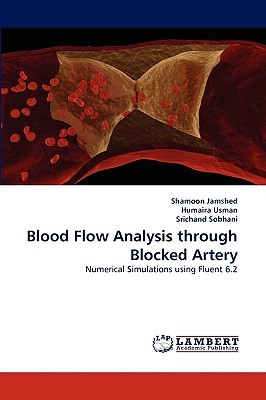
- We will send in 10–14 business days.
- Author: Shamoon Jamshed
- Publisher: LAP Lambert Academic Publishing
- ISBN-10: 3838343964
- ISBN-13: 9783838343969
- Format: 15.2 x 22.9 x 0.7 cm, softcover
- Language: English
- SAVE -10% with code: EXTRA
Reviews
Description
In this study, different turbulence models like k-epsilon and k-omega SST model are tested by comparing them against experimental data given by Deshpande and Giddens 1976. The stenosed geometry of 75 % area reduction is used for comparison. CFD code FLUENT 6.2 is used to solve the flow equations and a steady state flow with 2D axi-symmetric geometry is considered with Reynolds number of 5000. For lamnar flow in CCA, Reynolds numbers 50, 100 and 200 were used and the results were compared with the experimental data as given by Ahmed Giddens and Mabon. The results for laminar study were also obtained by varying the degree of occlusion i.e. 75 %, 56 % and two geometries with 89% area reduction. The models were named as M0, M1, M2 and M3. In the study, we found that model M3 is highly severe stenosis and a medical scanned image approximating this kind of geometry must be seriously examined.
EXTRA 10 % discount with code: EXTRA
The promotion ends in 17d.16:13:51
The discount code is valid when purchasing from 10 €. Discounts do not stack.
- Author: Shamoon Jamshed
- Publisher: LAP Lambert Academic Publishing
- ISBN-10: 3838343964
- ISBN-13: 9783838343969
- Format: 15.2 x 22.9 x 0.7 cm, softcover
- Language: English English
In this study, different turbulence models like k-epsilon and k-omega SST model are tested by comparing them against experimental data given by Deshpande and Giddens 1976. The stenosed geometry of 75 % area reduction is used for comparison. CFD code FLUENT 6.2 is used to solve the flow equations and a steady state flow with 2D axi-symmetric geometry is considered with Reynolds number of 5000. For lamnar flow in CCA, Reynolds numbers 50, 100 and 200 were used and the results were compared with the experimental data as given by Ahmed Giddens and Mabon. The results for laminar study were also obtained by varying the degree of occlusion i.e. 75 %, 56 % and two geometries with 89% area reduction. The models were named as M0, M1, M2 and M3. In the study, we found that model M3 is highly severe stenosis and a medical scanned image approximating this kind of geometry must be seriously examined.


Reviews